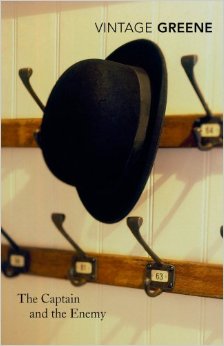
I enjoyed this book quite a lot, but it also felt in some way like a young adult novel; it seems like a brilliant book written by a boy. And yet there are deep honest truths about love and youth contained within the pages that resonated strongly with me.
Jim (Baxter) appears to be incapable of love. He talks about his own attempts at dating as if they were small sporting events, at best, or minor episodes of illness, at worst. Love for Jim is something to be recovered from in order to become stronger and better for the next round. This same lack of understanding of love that stems from his limited emotional capacity also thwarts his attempts to solve the riddle of Liza and the Captain’s relationship. He continuously questions whether he himself even loves Liza or the Captain, who have been the most important figures in his life – and the kindest to him – to date. But then perhaps he couldn’t understand love, given his tragically loveless childhood. And here is that truth: The desire to solve this riddle of love, to explain the strangeness in human relations, and to feel and understand love deeply — these are perhaps more universal among young adults and twenty-somethings than just being found in brilliant boys from broken homes. I remember similar feelings and thoughts in my callow twenties; did I really love my parents, or was it just a quirk of fate and chance that I was born and raised in such a family? Sadly, but perhaps necessarily, the experiences of illness and loss answered these important young adult quandaries. Pain is the answer; there is love and deep emotion.
Despite the young adult tone of this partially autobiographical novel, glimpses of authorial mastery glimmer through the joints in the narrative. In the brief passage that closes the first half of the novel where Jim wonders whether his lack of feeling toward these two major figures in his life is simply because he regards them more, or merely, as characters in a novel that he is writing. Fun! And brilliant. Borgesian, digging exactly at the root of so many questions of modernity. The ending expands this meta narrative but not as elegantly, tersely, and originally. However, I liked the feeling of being slightly ripped off at the end of the book. Perfectly in keeping with the themes of the novel, it’s all a con anyway, isn’t it, this whole novel thing? Just made up stories…
?
Additional Resources
- The Captain and the Enemy – Wikipedia page
- Father Lost me in a Game of Backgammon New York Times Book Review
- Graham Greene: Sinner Take All from Matthew Price
- Dangerous Edge: A Life of Graham Greene: Watch the documentary on PBS
